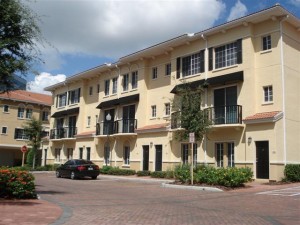 The purpose of this article is to help you save money on your next building insurance premium. There is a simple and easy process to get the right amount of coverage for the most reasonable price available, yet most people don’t do it. Don’t make the mistake that many of your peers make. This brief article will lead you through the process of obtaining the most sensible insurance rates.
The purpose of this article is to help you save money on your next building insurance premium. There is a simple and easy process to get the right amount of coverage for the most reasonable price available, yet most people don’t do it. Don’t make the mistake that many of your peers make. This brief article will lead you through the process of obtaining the most sensible insurance rates.
Determine the Proper Sequencing
Many times the insurance process is gone about in the wrong order. You tell the insurer that you need to get coverage and the insurer issues your rate based upon how much they think you should buy from them—not how much you really need to buy from them. If your policy is set to expire, they have you right where they want you because there is not enough time for you to compare all rates.
- So what is the most overlooked part of obtaining reasonably priced hazard insurance? Getting an accurate insurance appraisal several months before your policy lapses.
It is best to have an insurance appraisal done a few months before your policy expires, so you have time to shop the appraisal around for the best insurance quotes. If you wait until the last minute, your options will be limited, you will be at the mercy of your current insurance carrier, and you will wind up paying a higher rate.
Shop Around and Check Different Carriers
Also, be aware that not all insurance appraisal providers are created equally. In fact, some insurance appraisals are very limited on the content they provide. The insurance appraisal should use the segregated costs method, where each building component is listed separately. Additionally, the appraisal should list explicitly which items are not covered by insurance and not include these items in the overall replacement cost. Typically, foundations, excavation, piping below ground, finished carpentry, cabinets and countertops, plumbing trim, electrical trim, and ceiling fans, interior paint, flooring, bath tile and tubs, and built-in appliances are not included in hazard insurance for condominiums. For more information, see the article Hazard Insurance Appraisal Checklist.
Real World Example
Here is an example from a client. We did an insurance appraisal for a community and the replacement cost was lower than the previous inflated appraisal, which also included items not covered under the insurance policy. Since they now knew how much coverage they needed, their best option was to shop around for rates with this appraisal. Since they were not up against a firm deadline, they had the option to do this. In the end, they saved 28% on their new premium. The key is to give yourself enough time before the renewal date.
Be proactive obtaining your insurance coverage. Don’t be reactive, because it will certainly cost you money. We want the process of obtaining insurance to save you money, instead of you giving extra money to an insurance company for coverage that you don’t need.